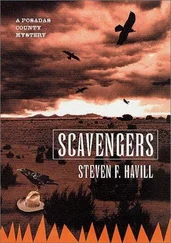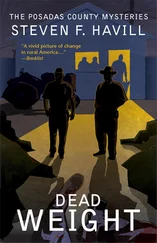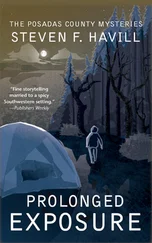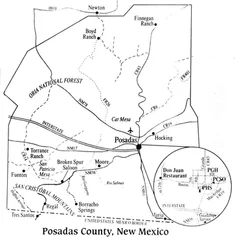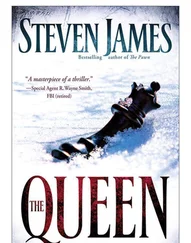Steven Levitt - Freakonomics
Здесь есть возможность читать онлайн «Steven Levitt - Freakonomics» весь текст электронной книги совершенно бесплатно (целиком полную версию без сокращений). В некоторых случаях можно слушать аудио, скачать через торрент в формате fb2 и присутствует краткое содержание. Год выпуска: 2005, ISBN: 2005, Издательство: HarperCollins Publishers Ltd., Жанр: Прочая научная литература, на английском языке. Описание произведения, (предисловие) а так же отзывы посетителей доступны на портале библиотеки ЛибКат.
- Название:Freakonomics
- Автор:
- Издательство:HarperCollins Publishers Ltd.
- Жанр:
- Год:2005
- ISBN:ISBN 0-06-083822-1
- Рейтинг книги:5 / 5. Голосов: 1
-
Избранное:Добавить в избранное
- Отзывы:
-
Ваша оценка:
- 100
- 1
- 2
- 3
- 4
- 5
Freakonomics: краткое содержание, описание и аннотация
Предлагаем к чтению аннотацию, описание, краткое содержание или предисловие (зависит от того, что написал сам автор книги «Freakonomics»). Если вы не нашли необходимую информацию о книге — напишите в комментариях, мы постараемся отыскать её.
Freakonomics — читать онлайн бесплатно полную книгу (весь текст) целиком
Ниже представлен текст книги, разбитый по страницам. Система сохранения места последней прочитанной страницы, позволяет с удобством читать онлайн бесплатно книгу «Freakonomics», без необходимости каждый раз заново искать на чём Вы остановились. Поставьте закладку, и сможете в любой момент перейти на страницу, на которой закончили чтение.
Интервал:
Закладка:
If morality represents the way we would like the world to work and economics represents how it actually does work, then the story of Feldman’s bagel business lies at the very intersection of morality and economics. Yes, a lot of people steal from him, but the vast majority, even though no one is watching over them, do not. This outcome may surprise some people—including Feldman’s economist friends, who counseled him twenty years ago that his honor-system scheme would never work. But it would not have surprised Adam Smith. In fact, the theme of Smith’s first book, The Theory of Moral Sentiments, was the innate honesty of mankind. “How selfish soever man may be supposed,” Smith wrote, “there are evidently some principles in his nature, which interest him in the fortune of others, and render their happiness necessary to him, though he derives nothing from it, except the pleasure of seeing it.”
There is a tale, “The Ring of Gyges,” that Feldman sometimes tells his economist friends. It comes from Plato’s Republic. A student named Glaucon offered the story in response to a lesson by Socrates—who, like Adam Smith, argued that people are generally good even without enforcement. Glaucon, like Feldman’s economist friends, disagreed. He told of a shepherd named Gyges who stumbled upon a secret cavern with a corpse inside that wore a ring. When Gyges put on the ring, he found that it made him invisible. With no one able to monitor his behavior, Gyges proceeded to do woeful things—seduce the queen, murder the king, and so on. Glaucon’s story posed a moral question: could any man resist the temptation of evil if he knew his acts could not be witnessed? Glaucon seemed to think the answer was no. But Paul Feldman sides with Socrates and Adam Smith—for he knows that the answer, at least 87 percent of the time, is yes.
Levitt is the first to say that some of his topics—a study of discrimination on The Weakest Link?—border on the trivial. But he has shown other economists just how well their tools can make sense of the real world. “Levitt is considered a demigod, one of the most creative people in economics and maybe in all social science,” says Colin F. Camerer, an economist at the California Institute of Technology. “He represents something that everyone thinks they will be when they go to grad school in econ but usually they have the creative spark bored out of them by endless math—namely, a kind of intellectual detective trying to figure stuff out.”
—THE NEW YORK TIMES MAGAZINE, AUGUST 3, 2003
2. How Is the Ku Klux Klan Like a Group of Real-Estate Agents?
As institutions go, the Ku Klux Klan has had a markedly up-and-down history. It was founded in the immediate aftermath of the Civil War by six former Confederate soldiers in Pulaski, Tennessee. The six young men, four of whom were budding lawyers, saw themselves as merely a circle of like-minded friends—thus the name they chose, “kuklux,” a slight mangling of kuklos, the Greek word for “circle.” They added “klan” because they were all of Scotch-Irish descent. In the beginning, their activities were said to be harmless midnight pranks—riding horses through the countryside while draped in white sheets and pillowcase hoods. But soon the Klan evolved into a multi-state terrorist organization designed to frighten and kill emancipated slaves. Among its regional leaders were five former Confederate generals; its staunchest supporters were the plantation owners for whom Reconstruction posed an economic and political nightmare. In 1872, President Ulysses S. Grant spelled out for the House of Representatives the true aims of the Ku Klux Klan: “By force and terror, to prevent all political action not in accord with the views of the members, to deprive colored citizens of the right to bear arms and of the right of a free ballot, to suppress the schools in which colored children were taught, and to reduce the colored people to a condition closely allied to that of slavery.”
The early Klan did its work through pamphleteering, lynching, shooting, burning, castrating, pistol-whipping, and a thousand forms of intimidation. They targeted former slaves and any whites who supported the blacks’ rights to vote, acquire land, or gain an education. Within barely a decade, however, the Klan had been extinguished, largely by legal and military interventions out of Washington, D.C.
But if the Klan itself was defeated, its aims had largely been achieved through the establishment of Jim Crow laws. Congress, which during Reconstruction had been quick to enact measures of legal, social, and economic freedom for blacks, just as quickly began to roll them back. The federal government agreed to withdraw its occupation troops from the South, allowing the restoration of white rule. In Plessy v. Ferguson, the U.S. Supreme Court gave the go-ahead to full-scale racial segregation.
The Ku Klux Klan lay largely dormant until 1915, when D. W. Griffith’s film The Birth of a Nation—originally titled The Clansman—helped spark its rebirth. Griffith presented the Klan as crusaders for white civilization itself, and as one of the noblest forces in American history. The film quoted a line from A History of the American People, written by a renowned historian: “At last there had sprung into existence a great Ku Klux Klan, a veritable empire of the South, to protect the Southern country.” The book’s author was U.S. president Woodrow Wilson, onetime scholar and president of Princeton University.
By the 1920s, a revived Klan claimed eight million members, including President Warren G. Harding, who reportedly took his Klan oath in the Green Room of the White House. This time around, the Klan was not confined to the South but ranged throughout the country; this time, it concerned itself not only with blacks but also with Catholics, Jews, communists, unionists, immigrants, agitators, and other disrupters of the status quo. In 1933, with Hitler ascendant in Germany, Will Rogers was the first to draw a line between the new Klan and the new threat in Europe: “Papers all state Hitler is trying to copy Mussolini,” he wrote. “Looks to me like it’s the Ku Klux that he is copying.”
The onset of World War II and a number of internal scandals once again laid the Klan low. Public sentiment turned against the Klan as the unity of a country at war trumped its message of separatism.
But within a few years, there were already signs of a massive revival. As wartime anxiety gave way to postwar uncertainty, Klan membership flourished. Barely two months after V-J Day, the Klan in Atlanta burned a 300-foot cross on the face of Stone Mountain, site of a storied rock carving of Robert E. Lee. The extravagant cross burning, one Klansman later said, was intended “just to let the niggers know the war is over and that the Klan is back on the market.”
Atlanta had by now become Klan headquarters. The Klan held great sway with key Georgia politicians, and its Georgia chapters included many policemen and sheriff’s deputies. Yes, the Klan was a secret society, reveling in passwords and cloak-and-dagger ploys, but its real power lay in the very public fear that it fostered—exemplified by the open secret that the Ku Klux Klan and the law-enforcement establishment were brothers in arms.
Atlanta—the Imperial City of the KKK’s Invisible Empire, in Klan jargon—was also home to Stetson Kennedy, a thirty-year-old man with the bloodlines of a Klansman but a temperament that ran opposite. He came from a prominent southern family whose ancestors included two signers of the Declaration of Independence, an officer in the Confederate Army, and John B. Stetson, founder of the famed hat company and the man for whom Stetson University was named.
Stetson Kennedy grew up in a fourteen-room house in Jacksonville, Florida, the youngest of five children. His uncle Brady was a Klansman. But he got his first real exposure to the Klan when the family’s maid, Flo, who had pretty much raised Stetson, was tied to a tree, beaten, and raped by a gang of Klansmen. Her offense: talking back to a white trolley driver who had shortchanged her.
Читать дальшеИнтервал:
Закладка:
Похожие книги на «Freakonomics»
Представляем Вашему вниманию похожие книги на «Freakonomics» списком для выбора. Мы отобрали схожую по названию и смыслу литературу в надежде предоставить читателям больше вариантов отыскать новые, интересные, ещё непрочитанные произведения.
Обсуждение, отзывы о книге «Freakonomics» и просто собственные мнения читателей. Оставьте ваши комментарии, напишите, что Вы думаете о произведении, его смысле или главных героях. Укажите что конкретно понравилось, а что нет, и почему Вы так считаете.





